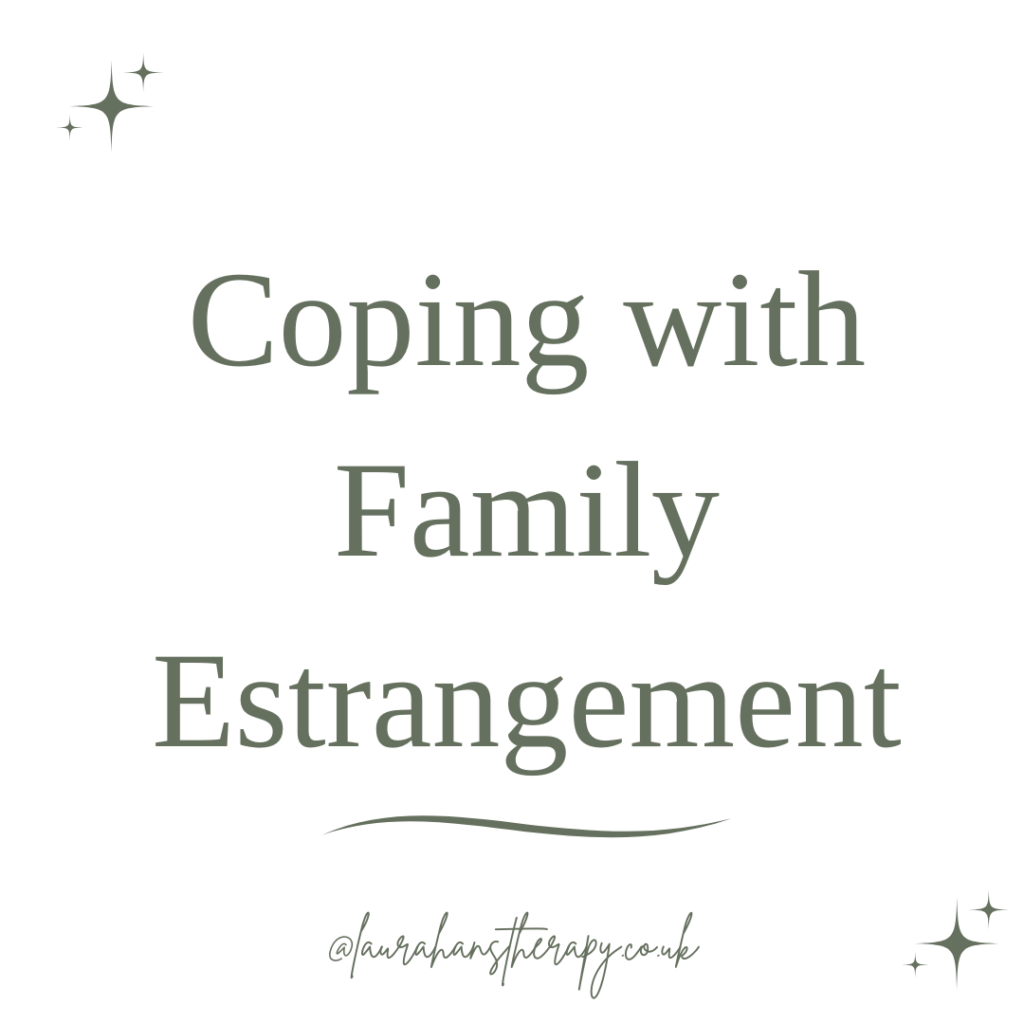What is Family Estrangement?
Family estrangement is a term used to describe what happens when a relationship between family members breaks down. Often, this happens due to some kind of mistreatment on one or both sides. Estrangement can look like a reduction in communication or a complete end to the interaction between family members.
Family estrangement is very common after things like childhood trauma. Often adult children eventually recognise there was a level of abuse, neglect or mistreatment by the family member in question and decide that maintaining a relationship with them is detrimental to their own physical and emotional wellbeing.
What It’s Not
The decision to cut or minimise contact with family members is rarely taken lightly. For most people, it’s a brave act of self-compassion. It tells those involved that you know you don’t deserve to be mistreated. As a child, you don’t have much control over your needs and whether they’re met by caregivers. But you’re an adult now, giving you the power to set boundaries and protect your wellbeing.
Family estrangement can sometimes be viewed as an adult child punishing their parent or caregiver. This is rarely the case. Those who have been abused, neglected or mistreated as children, often choose to remain estranged from family members purely to protect their peace. It’s not done out of malice.
Society tends to uphold the view that ‘blood is thicker than water’. This means people often struggle to understand the decision to cut or minimise contact with family. They may push you to forgive and forget, making you feel bad or guilty about your choice.
I disagree with this entirely. Having worked with a significant amount of people who are estranged from family members who mistreated them, I know there’s often a lot of grief, heartache and loss that comes up as a result. Moreover, estrangement often happens because the family member is continuing to perpetrate abuse, neglect and mistreatment, and their behaviour is affecting the adult child’s life, relationships and wellbeing. Nobody should have to tolerate mistreatment or abuse just because they’re related by blood.
The Impact on Your Mental Health
Cutting contact with toxic family members may initially feel very difficult. You might experience lots of guilt and worry about whether you’ve made the right decision. You might find yourself focussing on how the family member will be feeling, especially if you’ve learnt their needs and feelings are more important than your own.
The decision may provoke feelings of grief for the loss of the relationship, especially if it’s a parent or caregiver. This can lead to feelings of confusion because we often associate grief with the death of a person, rather than the loss of something we could access if we chose to.
On a more positive note, once these initial feelings have been processed, there’s often an improvement in the mental health of the individual who has cut contact and set boundaries because they’re no longer being mistreated. Many people go on to grow, develop and flourish in life.
However, there may be tough days. Birthdays and special occasions can bring up familiar feelings of grief and loss. You might also experience confusion about how you should be behaving. For example, should you send a card or not? Can you miss someone and still not want them in your life? These feelings are completely understandable.
How to Cope with Family Estrangement
- Lean on Others
Surround yourself with people who are supportive of your needs and can provide wisdom, guidance and reassurance on your journey through family estrangement.
It’s important to find people who validate your feelings and respect your choices without making you feel guilty or bad for making them. Ideally, they’ll also be able to help you look at things from a different perspective. Not by telling you what to do or trying to convince you that you’re wrong, but by helping you weigh up the decision to remain estranged based on different viewpoints.
- Self-Compassion
Time and time again, self-compassion is the answer to the issues I’m seeing in the therapy room. Family estrangement is no different.
Remember, it’s not your fault you were mistreated. Nor are you to blame for the suffering this caused and your subsequent decision to cut or minimise contact. You deserve good things and to be treated well. You are worthy of gentleness and understanding. Telling yourself these sorts of things can help you reassure and nurture yourself on what is often a very difficult journey.
- Seek Help from a Therapist
If you’re finding it tough and lack support from others, you can always reach out to a therapist like me who has significant experience working with people who have been mistreated, abused or neglected within their lifetime. I can provide reassurance, validation and a safe space for you to explore your feelings and the decisions they’ve led you to.
Find Out More
If you’re struggling with family estrangement and its impact on your mental health, I can help. Start your therapy journey by booking a consultation here or subscribe to The Nurture Toolkit for free, actionable support straight to your inbox. I also share lots of tips and valuable information via Instagram.
